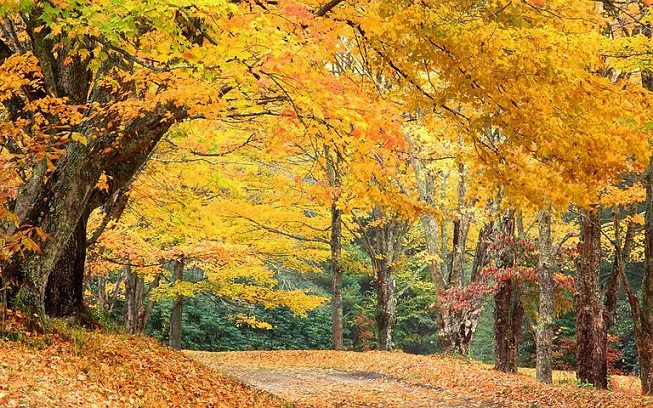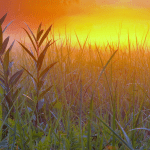Autumn is my favorite season, and October is my favorite month. This is not surprising for a native New Englander—fall weather is the best that the Northeast has to offer and October promises cloudless skies, reducing temperatures, turning leaves, and no humidity. I love it.

But those of us fortunate enough to be living the academic life welcome October for more reasons than beautiful weather. By the time this month arrives, the fall semester has been in session for a few weeks, the first major papers have been assigned, those papers have been submitted (usually by the deadline), and for the first time since last spring professors are buried under piles of grading (or at least virtual piles, since all of my student papers are submitted, read, graded, and returned online). Then just because it loves teachers, October gives us Columbus Day, a twenty-four hour gift from the calendar gods providing a bit of extra time to breathe, reflect, adjust expectations, and take a walk or bike ride. And grade papers.
There is an underlying truth to autumn that many find disturbing. While spring promises new beginnings—as they say, hope “springs” eternal (couldn’t help myself)—autumn is about things winding down and ending. Aristotle tells us that “generation and corruption” is the defining process of the natural world. Things are born, they live, and then they die. Over and over again.
A person in the autumn of her life, who stopped being a spring chicken decades ago, may be happy, beautiful, productive, and full of energy. But she’s also inching toward a final truth that most of us over a lifetime learn to expertly ignore. As Job tells us, “mortals die and are laid low.” The autumn leaves that turn orange, yellow or red in spectacular display are dying and will fall to the ground within a couple of weeks. And so, comparatively speaking, will we. Autumn is the doorway into the corruption side of generation and corruption.
Now in my early sixties, I not only continue to love autumn—I am living autumn. This fall I find myself more aware than ever of something I first learned a few years ago: It is possible to create and sustain a space of peace and centeredness in the middle of a world that provides reasons to be stressed, overworked, distressed, angry, and depressed on a daily basis. This is sometimes hard to believe; as an infantile President, a dysfunctional Congress, a polarized citizenry, mass shootings, and nuclear threats compete to define our lives and drain every ounce of energy dry, where is any sort of respite to be found? I have been reminded recently in various ways that we each possess within us sufficient tools to create such a respite.
In my Philosophy of Knowledge course this past week we began several classes on the work of Michel de Montaigne, perhaps my favorite philosopher in the Western tradition. Just a few days ago I discovered that a commenter on one of my recent blog posts is also a dedicated member of the Montaigne fan club. As we wrote back in forth about why we love Montaigne, a guy whose response to the religious violence surrounding him in 16th century France was a radical skepticism questioning just about everything we claim to know with certainty, my conversant, who revealed that he is an ordained minister, wrote
- I like to mortify my religiously devout friends by saying Montaigne has had as large an impact on my spiritual formation as Jesus himself did.
In response to his asking why I love Montaigne; I wrote
- His honesty, humility, open-endedness, skepticism, good humor (usually), and ability to find the fascinating just beneath the surface of the mundane–just to name a few. I love his essay style–I have used him as a model for my own writing many times. If he were alive today, he would be an incurable blogger! The older I get, the more I resonate with him.
- I had never read Montaigne before but what a guy. This reading is awesome. Looking forward to class tomorrow!
I shared my student’s email with my new pastor friend; he responded
- Introducing young (and older:) minds to Montaigne must be one of the joys of your profession — living in a pseudo-“Christian” country, I can’t say I’ve ever had the pleasure of doing that as a pastor with Jesus . . .
In his essay “On Presumption,” Montaigne writes something that only someone in the autumn of his life could have truthfully written.
I have come to the point where except for health and life, there is nothing for which I am willing to bite my nails, nothing that I am willing to buy at the price of mental torment and constraint.
Montaigne insists, and my own experience over the past several years has confirmed, that peace and contentment are not random events that might occasionally surprise us as we run the daily rat race. Peace and contentment are choices.
I chose this morning to start the day with the Psalms and a little bit of reading from the New Testament, a helpful daily practice that I developed several years ago while on sabbatical and sustained until recently when, for reasons I can’t entirely identify, other morning matters started seeming more important. In his letter to the church at Philippi, Paul writes in his autumn years from prison, undoubtedly aware that his life would be ending before long.
I have learned in whatever state I am, to be content: I know how to be abased, and I know how to abound. Everywhere and in all things I have learned both to be full and to be hungry, both to abound and to suffer need.
Wow, Paul must have read his Montaigne. In truth, it would not be at all surprising if Montaigne had such passages from Scripture in mind as he wrote about contentment and peace. He regularly reflected on the difference between what being a Christian might require (he was a lifelong Catholic) and the carnage being caused in the name of competing Christian orthodoxies around him; he regularly described this difference in terms of silence and centeredness, balance and humility, rather than aggressive conviction and doctrinal certainty.
I also would not be surprised if this shared insight between Paul and Montaigne is part of what my blog commenting friend had in mind when he said that he owes as much of his spiritual development to Montaigne as he does to Jesus. The Christian faith at its best reawakens and energizes what is in each of us naturally from the start—an ability to orient ourselves to the beating heart of the universe. This is why Paul was able, a few verses earlier in Philippians, from his prison cell to express a beautiful promise and to provide sage advice that still resonates two millennia later.
Let your gentleness be known to all . . . Be anxious for nothing . . . and the peace of God, which surpasses all understanding, will guard your hearts and minds through Christ Jesus. Finally, whatever things are true . . noble . . . just . . . pure . . . lovely . . . of good report, if there is any virtue and if there is anything praiseworthy—meditate on these things.
Why could Jesus walk on troubled waters? Because he knew what Paul and Montaigne came to know—there is nothing, absolutely nothing, that is worth sacrificing one’s peace and contentment. Because it is in that quiet space that we find our truest selves . . . and God is there

















